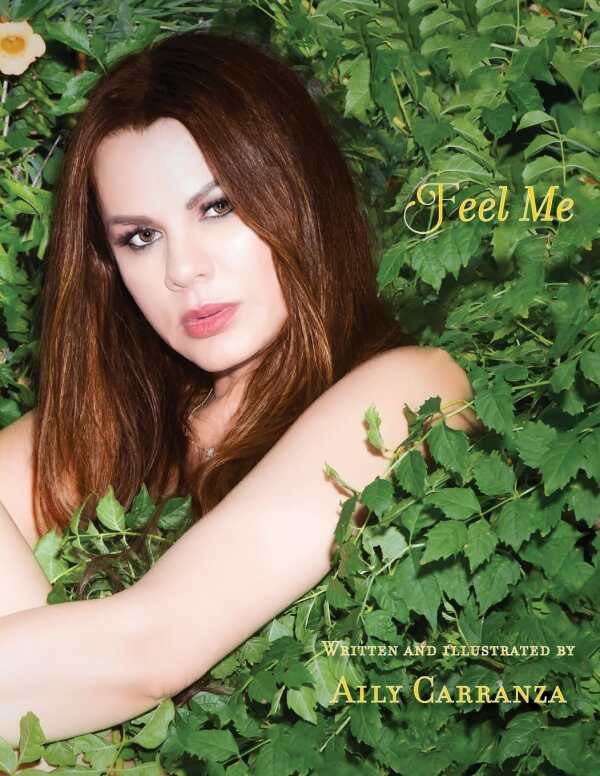Feel Me
Feel Me is a quite personal collection of poetry and art that records steps toward healing from trauma.
In Aily Carranza’s exuberant poetry collection Feel Me, poems and artwork are therapeutic modalities for healing.
Using poetry and visual art, Feel Me testifies to the possibility of recovery from multiple traumas by strengthening one’s connections with animals, seascapes and landscapes, and the divine feminine. The book’s explicit purpose is to encourage others who survived trauma to remember they are made of “stardust, seawater, and strength.” Its several pages of dedications and its author’s note mention critical autobiographical details, like the murder of Carranza’s father, that help contextualize specific elements of the poems.
Dozens of visual artworks further speak to the role of imagination in healing. These include photographic montages of Carranza’s loved ones, glamour shots of her in various costumes cosplaying goddesses and magical beings from a wide variety of cultures, and paintings expressing grief, compassion, and divinity.
In the book’s first part, “Echoes of the Ocean,” the poems brim with extravagant praise for animals, including for Sunny, the Giant Schnauzer who was Carranza’s companion during her healing process, as well as dolphins and other marine life that Carranza observed from a beloved beach. These praise poems appear in lyric form, eschewing contextual narratives to concentrate on images and emotions. Spiritual dimensions are credited to the animals, too. However, the physical descriptions of the marine mammals are sometimes at odds with their anatomy, as when a dolphin is pictured “hand in fin” with “a joyful stride.” Piquing questions, as of whether humans can learn from the adaptability of octopuses, accompany some of the animal poems but go unanswered.
The poems employ regular rhyme and meter schemes, resulting in fixed musicality that is often at odds with the poems’ subjects and themes. Further, some opportunities to flesh out meaning are cut short by forced rhymes. When the poems relax their patterns a bit, their spirits shine through more, as with “A Mother Dolphin and her Newborn Heart,” which is written in couplets and whose lines flow into each other well, such that the mother-child bond is made visible by the form itself.
The book’s second part, “Rising Tides, Rising Spirits,” turns the focus to trauma recovery and the power of claiming the feminine divine. These poems are denser and more narrative, sprinkling dramatic personal details into their lines regarding quests for the goddess within. Some retain the ocean settings and images seen in the book’s first part, yielding consistency. Moment-by-moment descriptions and emotional reflections also appear.
A direct and vulnerable poetry collection, Feel Me seeks therapeutic relief through musical verses and art.
Reviewed by
Michele Sharpe
Disclosure: This article is not an endorsement, but a review. The publisher of this book provided free copies of the book and paid a small fee to have their book reviewed by a professional reviewer. Foreword Reviews and Clarion Reviews make no guarantee that the publisher will receive a positive review. Foreword Magazine, Inc. is disclosing this in accordance with the Federal Trade Commission’s 16 CFR, Part 255.

